Daniel Nichols
Optimizing Agentic Language Model Inference via Speculative Tool Calls
Dec 17, 2025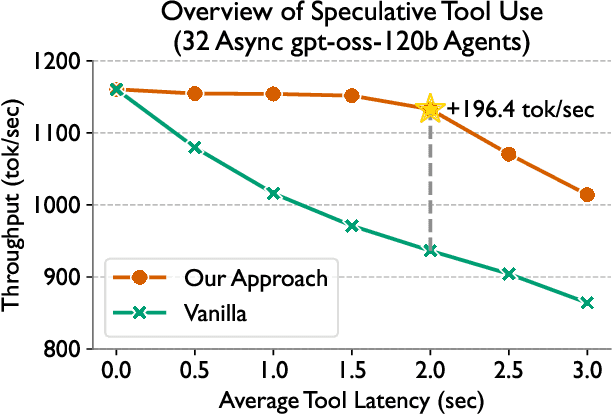



Abstract:Language models (LMs) are becoming increasingly dependent on external tools. LM-based agentic frameworks frequently interact with their environment via such tools to search files, run code, call APIs, etc. Further, modern reasoning-based LMs use tools such as web search and Python code execution to enhance their reasoning capabilities. While tools greatly improve the capabilities of LMs, they also introduce performance bottlenecks during the inference process. In this paper, we introduce novel systems optimizations to address such performance bottlenecks by speculating tool calls and forcing sequences to remain resident in the inference engine to minimize overheads. Our optimizations lead to throughput improvements of several hundred tokens per second when hosting inference for LM agents. We provide a theoretical analysis of our algorithms to provide insights into speculation configurations that will yield the best performance. Further, we recommend a new "tool cache" API endpoint to enable LM providers to easily adopt these optimizations.
LLMs as Packagers of HPC Software
Nov 07, 2025Abstract:High performance computing (HPC) software ecosystems are inherently heterogeneous, comprising scientific applications that depend on hundreds of external packages, each with distinct build systems, options, and dependency constraints. Tools such as Spack automate dependency resolution and environment management, but their effectiveness relies on manually written build recipes. As these ecosystems grow, maintaining existing specifications and creating new ones becomes increasingly labor-intensive. While large language models (LLMs) have shown promise in code generation, automatically producing correct and maintainable Spack recipes remains a significant challenge. We present a systematic analysis of how LLMs and context-augmentation methods can assist in the generation of Spack recipes. To this end, we introduce SpackIt, an end-to-end framework that combines repository analysis, retrieval of relevant examples, and iterative refinement through diagnostic feedback. We apply SpackIt to a representative subset of 308 open-source HPC packages to assess its effectiveness and limitations. Our results show that SpackIt increases installation success from 20% in a zero-shot setting to over 80% in its best configuration, demonstrating the value of retrieval and structured feedback for reliable package synthesis.
Modeling Code: Is Text All You Need?
Jul 15, 2025Abstract:Code LLMs have become extremely popular recently for modeling source code across a variety of tasks, such as generation, translation, and summarization. However, transformer-based models are limited in their capabilities to reason through structured, analytical properties of code, such as control and data flow. Previous work has explored the modeling of these properties with structured data and graph neural networks. However, these approaches lack the generative capabilities and scale of modern LLMs. In this work, we introduce a novel approach to combine the strengths of modeling both code as text and more structured forms.
Leveraging AI for Productive and Trustworthy HPC Software: Challenges and Research Directions
May 13, 2025Abstract:We discuss the challenges and propose research directions for using AI to revolutionize the development of high-performance computing (HPC) software. AI technologies, in particular large language models, have transformed every aspect of software development. For its part, HPC software is recognized as a highly specialized scientific field of its own. We discuss the challenges associated with leveraging state-of-the-art AI technologies to develop such a unique and niche class of software and outline our research directions in the two US Department of Energy--funded projects for advancing HPC Software via AI: Ellora and Durban.
HPC-Coder-V2: Studying Code LLMs Across Low-Resource Parallel Languages
Dec 19, 2024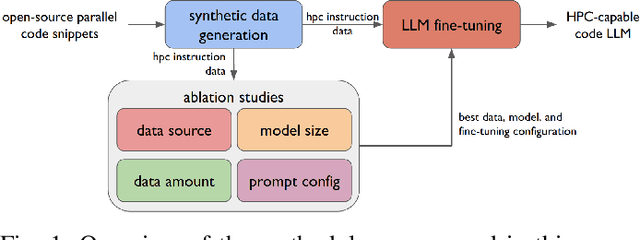

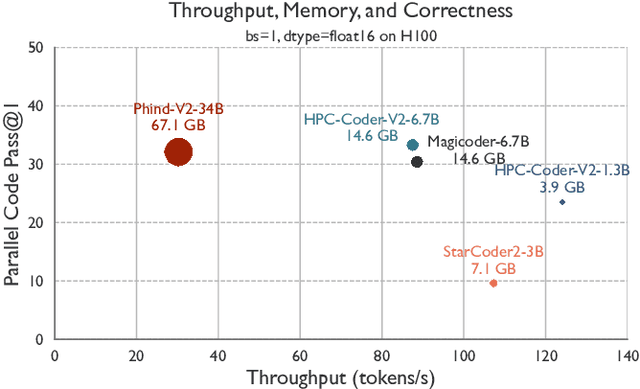
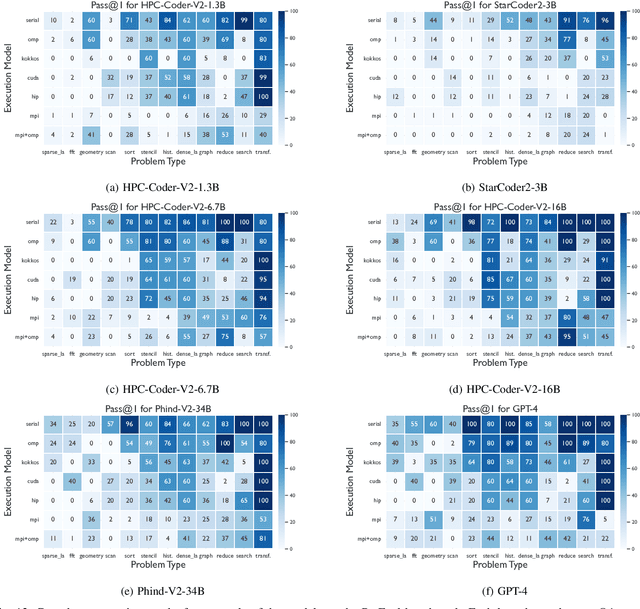
Abstract:Large Language Model (LLM) based coding tools have been tremendously successful as software development assistants, yet they are often designed for general purpose programming tasks and perform poorly for more specialized domains such as high performance computing. Creating specialized models and tools for these domains is crucial towards gaining the benefits of LLMs in areas such as HPC. While previous work has explored HPC-specific models, LLMs still struggle to generate parallel code and it is not at all clear what hurdles are still holding back these LLMs and what must be done to overcome them. In this work, we conduct an in-depth study along the many axes of fine-tuning a specialized HPC LLM in order to better understand the challenges. Based on our findings we fine-tune and evaluate a specialized HPC LLM that is shown to be the best performing open-source code LLM for parallel code generation to date.
Performance-Aligned LLMs for Generating Fast Code
Apr 29, 2024Abstract:Optimizing scientific software is a difficult task because codebases are often large and complex, and performance can depend upon several factors including the algorithm, its implementation, and hardware among others. Causes of poor performance can originate from disparate sources and be difficult to diagnose. Recent years have seen a multitude of work that use large language models (LLMs) to assist in software development tasks. However, these tools are trained to model the distribution of code as text, and are not specifically designed to understand performance aspects of code. In this work, we introduce a reinforcement learning based methodology to align the outputs of code LLMs with performance. This allows us to build upon the current code modeling capabilities of LLMs and extend them to generate better performing code. We demonstrate that our fine-tuned model improves the expected speedup of generated code over base models for a set of benchmark tasks from 0.9 to 1.6 for serial code and 1.9 to 4.5 for OpenMP code.
Can Large Language Models Write Parallel Code?
Jan 23, 2024



Abstract:Large Language Models are becoming an increasingly popular tool for software development. Their ability to model and generate source code has been demonstrated in a variety of contexts, including code completion, summarization, translation, and lookup. However, they often struggle to generate code for more complex tasks. In this paper, we explore the ability of state-of-the-art language models to generate parallel code. We propose a benchmark, PCGBench, consisting of a set of 420 tasks for evaluating the ability of language models to generate parallel code, and we evaluate the performance of several state-of-the-art open- and closed-source language models on these tasks. We introduce novel metrics for comparing parallel code generation performance and use them to explore how well each LLM performs on various parallel programming models and computational problem types.
Modeling Parallel Programs using Large Language Models
Jun 29, 2023

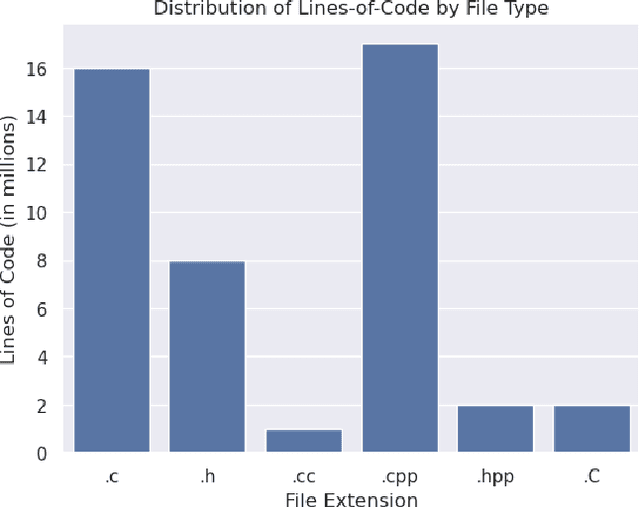

Abstract:Parallel software codes in high performance computing (HPC) continue to grow in complexity and scale as we enter the exascale era. A diverse set of emerging hardware and programming paradigms make developing, optimizing, and maintaining parallel software burdensome for developers. One way to alleviate some of these burdens is with automated development and analysis tools. Such tools can perform complex and/or remedial tasks for developers that increase their productivity and decrease the chance for error. So far, such tools for code development and performance analysis have been limited in the complexity of tasks they can perform. However, with recent advancements in language modeling, and the wealth of code related data that is now available online, these tools have started to utilize predictive language models to automate more complex tasks. In this paper, we show how large language models (LLMs) can be applied to tasks specific to high performance and scientific codes. We train LLMs using code and performance data that is specific to parallel codes. We compare several recent LLMs on HPC related tasks and introduce a new model, HPC-Coder, trained on parallel code. In our experiments we show that this model can auto-complete HPC functions where general models cannot, decorate for loops with OpenMP pragmas, and model performance changes in two scientific application repositories.
How to Train Your Neural Network: A Comparative Evaluation
Nov 09, 2021



Abstract:The field of deep learning has witnessed a remarkable shift towards extremely compute- and memory-intensive neural networks. These newer larger models have enabled researchers to advance state-of-the-art tools across a variety of fields. This phenomenon has spurred the development of algorithms for distributed training of neural networks over a larger number of hardware accelerators. In this paper, we discuss and compare current state-of-the-art frameworks for large scale distributed deep learning. First, we survey current practices in distributed learning and identify the different types of parallelism used. Then, we present empirical results comparing their performance on large image and language training tasks. Additionally, we address their statistical efficiency and memory consumption behavior. Based on our results, we discuss algorithmic and implementation portions of each framework which hinder performance.
Integrating Deep Learning in Domain Sciences at Exascale
Nov 23, 2020
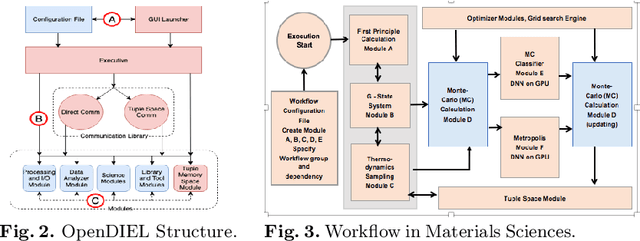
Abstract:This paper presents some of the current challenges in designing deep learning artificial intelligence (AI) and integrating it with traditional high-performance computing (HPC) simulations. We evaluate existing packages for their ability to run deep learning models and applications on large-scale HPC systems efficiently, identify challenges, and propose new asynchronous parallelization and optimization techniques for current large-scale heterogeneous systems and upcoming exascale systems. These developments, along with existing HPC AI software capabilities, have been integrated into MagmaDNN, an open-source HPC deep learning framework. Many deep learning frameworks are targeted at data scientists and fall short in providing quality integration into existing HPC workflows. This paper discusses the necessities of an HPC deep learning framework and how those needs can be provided (e.g., as in MagmaDNN) through a deep integration with existing HPC libraries, such as MAGMA and its modular memory management, MPI, CuBLAS, CuDNN, MKL, and HIP. Advancements are also illustrated through the use of algorithmic enhancements in reduced- and mixed-precision, as well as asynchronous optimization methods. Finally, we present illustrations and potential solutions for enhancing traditional compute- and data-intensive applications at ORNL and UTK with AI. The approaches and future challenges are illustrated in materials science, imaging, and climate applications.
 Add to Chrome
Add to Chrome Add to Firefox
Add to Firefox Add to Edge
Add to Edge